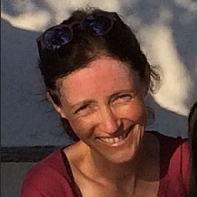Quantum Resource Theories: From Entanglement to Time Correlations and Measurement-Induced Noise
A special issue of Entropy (ISSN 1099-4300). This special issue belongs to the section "Quantum Information".
Deadline for manuscript submissions: closed (20 November 2025) | Viewed by 2680
Special Issue Editors
Interests: quantum optics; quantum sensing; open quantum systems
Special Issue Information
Dear Colleagues,
Initially, quantum technology schemes were routinely designed around the use of entanglement as their main resource. For example, quantum cryptography often uses highly entangled photon pairs to establish cryptographic keys between users. Moreover, quantum metrology often uses highly entangled photon states for beating the standard quantum limit in interferometric phase measurements. In addition, entangling quantum gates are an essential building block for quantum computing. However, entanglement is not always easy to generate and in recent years, attention has shifted to include alternative quantum resources. The question, where is the border between quantum and classical physics, lies at the center of many ongoing research projects that aim at obtaining a more accurate picture of available quantum resources.
Generally, quantum information is processed using unitary dynamics and subsequent measurements. Recently, it has been shown that generalized measurements can produce non-classical time correlations even in the absence of entanglement. This realization has led, for example, to the development of hidden quantum Markov models with applications in quantum metrology. In addition to generalized measurements, there are numerous other quantum resources that are currently being explored. These include causality violations and entanglement in time with applications such as quantum switches and hypothesis testing. In addition, quantum physics poses limitations on measurement uncertainties that are unbreakable and can hide information in quantum noise for quantum communication protocols.
This Special Issue aims to further our understanding of the features of quantum machines that allow them to surpass the capabilities of their classical counterparts by bringing together the scientific community of researchers studying quantum resource theories.
Dr. Lewis Clark
Dr. Almut Beige
Guest Editors
Manuscript Submission Information
Manuscripts should be submitted online at www.mdpi.com by registering and logging in to this website. Once you are registered, click here to go to the submission form. Manuscripts can be submitted until the deadline. All submissions that pass pre-check are peer-reviewed. Accepted papers will be published continuously in the journal (as soon as accepted) and will be listed together on the special issue website. Research articles, review articles as well as short communications are invited. For planned papers, a title and short abstract (about 250 words) can be sent to the Editorial Office for assessment.
Submitted manuscripts should not have been published previously, nor be under consideration for publication elsewhere (except conference proceedings papers). All manuscripts are thoroughly refereed through a single-blind peer-review process. A guide for authors and other relevant information for submission of manuscripts is available on the Instructions for Authors page. Entropy is an international peer-reviewed open access monthly journal published by MDPI.
Please visit the Instructions for Authors page before submitting a manuscript. The Article Processing Charge (APC) for publication in this open access journal is 2600 CHF (Swiss Francs). Submitted papers should be well formatted and use good English. Authors may use MDPI's English editing service prior to publication or during author revisions.
Keywords
- quantum correlations
- quantum Markov processes
- quantum finite-state machines
- quantum bounds
- causality
- complexity
- hypothesis testing
Benefits of Publishing in a Special Issue
- Ease of navigation: Grouping papers by topic helps scholars navigate broad scope journals more efficiently.
- Greater discoverability: Special Issues support the reach and impact of scientific research. Articles in Special Issues are more discoverable and cited more frequently.
- Expansion of research network: Special Issues facilitate connections among authors, fostering scientific collaborations.
- External promotion: Articles in Special Issues are often promoted through the journal's social media, increasing their visibility.
- Reprint: MDPI Books provides the opportunity to republish successful Special Issues in book format, both online and in print.
Further information on MDPI's Special Issue policies can be found here.







